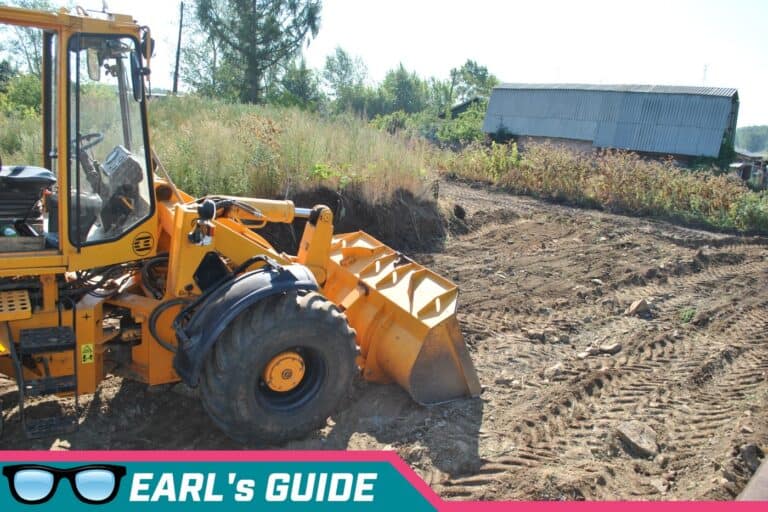Selecting the Ideal, Budget-friendly Reservation Software for Your RV Park
In the digital era, a seamless reservation experience is a key determinant in customer choice, and this is especially true for RV park owners. The right reservation system not only optimizes your operations but also boosts your guest’s satisfaction. The question is, among the plethora of options available — from time-honored pen and paper methods to cutting-edge software solutions — which one offers the best quality at the least expense and can be potentially embedded on your website? This article aims to shed light on this dilemma.
1. Manual Pen and Paper System: This method has been the cornerstone of businesses for centuries, including RV parks.
Pros:
- No initial technology costs.
- Straightforward and intuitive.
- Independence from internet connectivity.
Cons:
- Potential for human error leading to overbookings or missed reservations.
- Time-intensive and harder to manage during peak seasons.
- Lack of scalability and difficulty in data analysis.
2. Spreadsheets (e.g., Excel or Google Sheets): Spreadsheets offer a digital evolution from the paper method, providing more structure and flexibility.
Pros:
- Ability to organize and search records.
- Digital backups reduce risk of total data loss.
- Customizable to specific needs.
Cons:
- Susceptibility to errors without the right safeguards.
- Limited collaborative access.
- Challenges in managing growing data as the RV park expands.
3. Dedicated Reservation Software Solutions: With the rise of the RV park and campground industry, various dedicated software solutions have surfaced to address their unique needs. We’ll delve into some from the list provided:
- CampSpot: Tailored specifically for campgrounds and RV parks, it offers a contemporary interface and myriad features. Pros:
- User-friendly with drag-and-drop capabilities.
- Features like dynamic pricing for revenue optimization.
- Can be integrated into websites. Cons:
- Cost could be higher for smaller parks due to its extensive features.
- RMS Cloud: This cloud-based solution is crafted for the outdoor hospitality industry, offering robust property management features. Pros:
- Comprehensive suite of tools for guest and property management.
- Integrated online booking engine.
- Seamless third-party integrations. Cons:
- Might be an overkill for smaller RV parks.
- Reliant on stable internet connectivity.
- CampLife: Catering exclusively to RV parks and campgrounds, it offers tools like online booking, email marketing, and dynamic site maps. Pros:
- Tailored features for RV parks.
- Seamless website integration.
- Effective customer management tools. Cons:
- Cost structure might not suit very small parks.
- ResNexus: Originally geared towards inns and B&Bs, it’s now also used by RV parks due to its powerful reservation features. Pros:
- Comprehensive guest management tools.
- Automated email notifications and confirmations.
- Website-embeddable, mobile-responsive booking. Cons:
- Some features may be excessive for basic RV parks.
- Price might be prohibitive for smaller parks.
- Campground Master: Designed for managing reservations, point-of-sale, and other campground-specific needs. Pros:
- Versatile and adaptable.
- Point-of-sale integration.
- Effective for site rotations. Cons:
- Interface can seem dated.
- Steeper learning curve for non-tech-savvy users.
- Astra by Campground Manager: Offers tools tailored for RV parks, including reservations and front desk operations. Pros:
- Comprehensive suite tailored for RV parks.
- Integrated CRM.
- Regular updates and support. Cons:
- Initial setup can be complex.
- Higher end of the price spectrum.
- Bonfire: A web-based software designed for RV park and campground owners with an emphasis on simplicity. Pros:
- Intuitive user interface.
- Cloud-based; access from anywhere.
- Regular feature updates. Cons:
- Lacks some advanced features present in competitors.
- Reliant on stable internet connectivity.
- CampManager: Cloud-based and widely used in the UK and Europe, it offers booking and management features suitable for RV parks. Pros:
- Comprehensive dashboard view.
- Integration with various payment gateways.
- Automated guest communication tools. Cons:
- Might be over-featured for very small parks.
- Pricing structure may not fit every RV park’s budget.
- RoverPass: An online booking site and reservation management tool catering to RV parks and campgrounds. Pros:
- Extensive online exposure to potential guests.
- Easy-to-use interface.
- Direct online payments. Cons:
- Fees associated with bookings.
- Less customization compared to standalone systems.
- Staylist: A cloud-based reservation system emphasizing simplicity and mobile optimization. Pros:
- User-friendly interface.
- Effective on mobile devices.
- Integration with various payment gateways.
- Cons:
- Newer to the market; might lack some advanced features.
- Dependence on internet connectivity. Take a look at our comprehensive review of Staylist.
- NewBook: A platform catering to various property types, including RV parks. Pros:
- Broad set of features beyond just reservation management.
- Integration with third-party platforms.
- Regular updates. Cons:
- May be too comprehensive for parks only wanting a simple reservation system.
- Can be on the pricier side.
- ReserveAmerica: While it’s a reservation system primarily for state and national parks, some private RV parks and campgrounds also make use of it. Pros:
- Large audience as it’s a popular platform.
- Tried and tested system with reliability. Cons:
- Less customization for individual parks.
- Fees associated with bookings.
When choosing a reservation system, the key is to strike a balance between your specific needs and your budget. Investing in a system that offers more than you need can be as counterproductive as choosing one that doesn’t meet your requirements. Always prioritize user experience — both for your team and your guests — to ensure smooth operations and satisfied customers.
Deciding on the Best Fit:
Your ideal reservation management system hinges on various factors:
- Size and Scope of Your RV Park: Smaller parks might manage with spreadsheets, but as you grow, a specialized software solution becomes indispensable.
- Budgetary Constraints: While initial costs for manual methods or spreadsheets are low, they might lead to lost revenue in the long run due to inefficiencies. Conversely, dedicated software, despite upfront or monthly costs, often compensates through increased bookings and efficient operations.
- User-friendliness: The system should be intuitive for your team. Training costs and time are factors to consider.
- Guest Experience: An embedded booking system on your website offers an uninterrupted experience, positioning you favorably in the competitive landscape.
- Scalability: As your business grows, so will your requirements. Opt for a system that scales with you.
Conclusion:
Navigating the maze of reservation systems can be daunting. However, with the digital shift, it’s evident that integrated online reservation systems have a clear advantage. Not only do they streamline operations, but they also enhance guest experiences, resulting in repeat business and stellar reviews.
For budget-conscious RV park owners, consider starting with a basic system, then gradually upgrading as your operations grow and evolve. Your emphasis should always be on maximizing guest experience. With the right system in place, you’re not just offering a place to park; you’re offering convenience, peace of mind, and an invitation for guests to return.

Robert Earl
Robert EarlRobert has 20+ years of experience as a Real Estate Agent, Coach & Digital Marketer. Robert Earl is passionate about teaching and empowering others to pursue their dreams and create sustainable income. Whether through a career in real estate, affiliate marketing, niche blogging, or transforming campgrounds into thriving communities, his proven strategies and techniques have helped numerous individuals and businesses succeed. Based on his years of experience and knowledge in the online marketing industry, along with his hands-on management in the Real Estate & RV Park sector, he has crafted a unique and effective approach to personal and professional growth. In addition to his business pursuits, Robert is also a CrossFit Online Level 1 Trainer (CF-OL1) and enjoys fitness activities, including Rucking workouts while traveling the country. His multifaceted career showcases his dedication to growth, innovation, and the pursuit of excellence in various domains.






